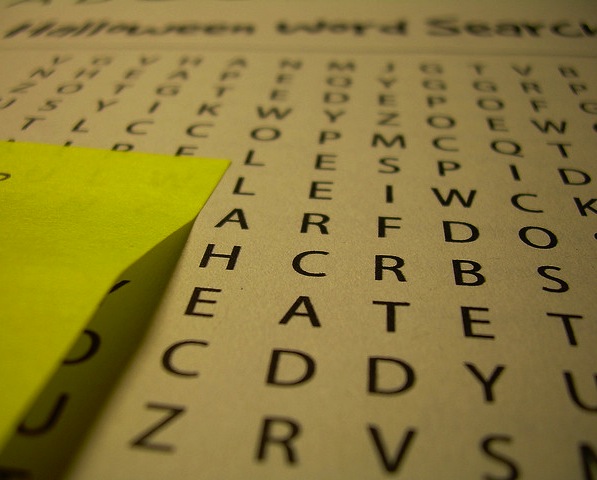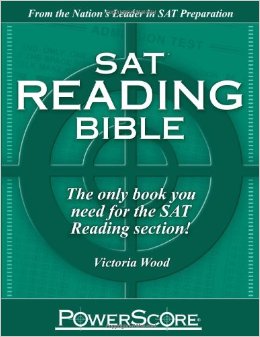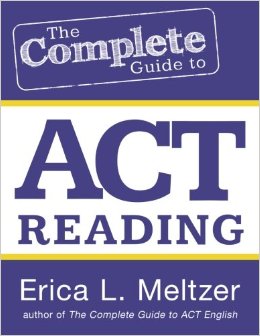Practice tests are key to good ACT prep, but just taking full-length practice tests isn’t enough to guarantee a good score. In this article, we'll go over the three major pitfalls that many students stumble into when attempting to use ACT practice tests.
Laura Staffaroni
Recent Posts
How Often Should You Take Complete Official ACT Practice Tests?
Taking official ACT practice tests under realistic testing conditions is vital to good ACT prep, but after a certain point you can hit a wall and stop getting any benefit out of it. In this article, we’ll discuss the frequency with which you should take ACT practice tests.
How Close to the ACT Should You Take a Practice Test?
It’s extremely important to take full-length practice tests under realistic conditions when studying for the ACT. However, you need to make sure you’re getting the full benefit by spacing out the practice tests correctly. In this article, we'll discuss both the earliest and the latest you should consider taking full ACT practice tests.
In Arthur Miller's The Crucible, Rebecca Nurse is a prominent and respected older woman in Puritan Salem, drawn into the witchcraft trials because of her and her husband’s friction with the Putnams. Though she has the least stage time of any of the major characters, Rebecca is important because of the moral ideals she represents.
This guide goes over what we do know about Rebecca and explains why she is so important to the play despite her limited time in the audience’s eye.
Vocab In Context Questions and Strategies for SAT Reading
What are "vocab in context questions" and what are the best ways to approach answering them? In this article, I'll go over the basics of what vocab in context questions are, then transition into more in-depth discussions of each of the two types (complete with examples, both official and homemade).
Finally, I'll end with suggesting strategies to use when tackling these types of questions.
Think Your New ACT Writing Score Is Wrong? Recent Issues, Explained
If you took the ACT with Writing in September, October, or December of 2015, you may have been taken by surprise by the change in the essay prompt (compared to previous ACT Writing tests). And when you got your scores back...well, you may have been even more confused.
While the change in the ACT essay format was announced ahead of time, the full explanation of how the Writing scores would be normalized was not made clear until after the first administration of the new ACT Writing test. Because of this, ACT, Inc. faced a bit of controversy about the scoring of the new Writing test. Now they've returned to a 12-point scoring scale, with a more transparent calculation system. Read on to learn what all this means for you.
Imagine: you’re in Social Studies. You hear a fellow 7th-grader sitting next to you say “Ugh, I have to take the SAT this weekend.” What is this person talking about? Why would you take the SAT in middle school? Is there even such a thing as a 7th grade SAT score?
If you're a parent, you may have heard of various advanced programs for gifted and talented children that require taking the SAT. But is it worth it to have your child take the SAT so early? Why start the stress around college applications earlier than high school?
In this article, I’ll go over the pros and cons of taking the SAT in 7th grade and the programs you can get into with high 7th grade SAT scores.
Paired passages on the ACT are a relatively new phenomenon, first announced by ACT, Inc in spring of 2013. Just as the changes to the new SAT have made it resemble the ACT, so have some of the changes to the ACT made it more like the SAT.
What are paired passages, why are they suddenly on the ACT, and what’s the best way to prep for them? Read on to find out.
Function and Development Questions on ACT Reading
Function questions (also sometimes known as “meaning in context” questions) make up approximately 20% of all ACT Reading questions (based on my survey of four publicly available ACTs). The ACT Reading will also occasionally have "development" questions, which are sort of like larger-scale versions of function questions (they ask about the structure of the passage or passages).
Both function and development questions require you to judge the effect of a phrase in a certain place (as opposed to little picture and vocab in context questions, which are just concerned with meaning). So how do you get asked function questions on the ACT, and what strategies can you use to answer them? Keep on reading to find out!
Inference Questions on SAT Reading and Writing: 6 Strategies
Inference questions appear frequently on the SAT Reading and Writing section. Answering inference questions correctly requires the ability to take information given in the text and then draw logical, supported conclusions from it.
What are the different kinds of inference questions asked on the SAT Reading and Writing Section, and how should you go about answering them? I've got the answers for you in this article.
Inference Questions in ACT Reading: Strategies + Practice
Questions that ask you about what information can be inferred from a line or series of lines on ACT Reading comprise about 15% of ACT Reading questions (based on my analysis of 4 publicly available ACTs). In order to answer these inference questions correctly, you must be able to understand what is written in the text and take one tiny, logical step beyond what is directly stated.
But how are inference questions asked, and what ACT Reading strategies can you use to answer them? Keep reading to find out and prep for this important question type!
Full Review: PowerScore SAT Reading Bible by Victoria Wood
PowerScore is a test prep company with fingers in many pies, including the SAT prep pie (the most standardized of pies?). They have published a trilogy of SAT Prep books: SAT Math Bible, SAT Writing Bible, and SAT Reading Bible (which is what I'll be reviewing today). Like most prep books, the SAT Reading Bible has some positive and some negative aspects. Read on to figure out whether or not this book is appropriate for you and if you should add it into your own test prep.
Full Review: Erica Meltzer's Complete Guide to ACT Reading
Erica Meltzer’s test prep books have burst onto the test prep scene (if that wasn't a thing before, it is now) in the last few years, to great acclaim. She's published 2 books on the ACT: The Complete Guide to ACT English and The Complete Guide to ACT Reading (which is what I will be reviewing in this article). While Meltzer's books are high quality, they are not without their flaws, so read on to figure out whether or not this book is appropriate for you and if you should integrate it into your own ACT test prep. All shall be explained!
At last, the time has come when you must tackle the ACT Reading. How can you practice for the ACT Reading? Where can you find ACT Reading practice questions? Is it even possible to practice for the Reading section? Read on for the answers to these questions.
Little Picture Questions in ACT Reading: Find the Detail
Little picture questions account for a huge amount of the questions on ACT Reading. Of the 4 publicly available ACTs I surveyed, between 25% and 50% of ALL Reading questions were little picture questions. So what does this mean for you and your ACT test prep? It means that it is well worth your time to make sure you can consistently answer little picture questions accurately and in a reasonable amount of time (what "reasonable" is will depend on the score you're aiming for).
In this article, I’ll provide examples of the different ways ACT Reading will ask you to use little picture skills and explain the strategies you can use to help with these questions. I'll end with a walkthrough of a sample question as well as practice questions for you try out on your own. First, however, I’ll explain what exactly I mean by “little picture” questions
























